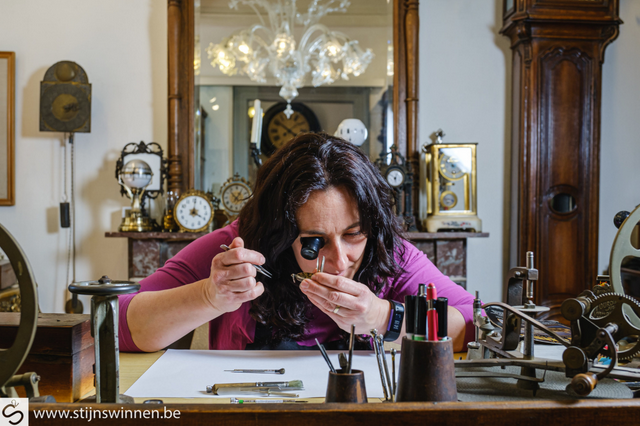Many professional repairers continued working during the corona crisis, despite not being able to open their shops.
Apparently the lockdown helped people realize that repair is important, which is good news because repair is essential for a sustainable and crisis-proof economy. Yet the repair sector remains small and often underexposed.
Now that Belgium allows shops to reopen their doors again, Repair&Share vzw launched a campaign to put repair shops in the spotlight.
An invisible sector
In Belgium the repair sector for consumer goods is still very small. If we add up all Belgian repairers of shoes, clothes, household appliances, smartphones, bicycles, furniture, etc we get close to 3,000 businesses in the country, accounting for only 0.2% of the total number of jobs. Our neighbors are doing better, although the repair sector remains ‘the little brother’ there too. In France, the country with the best score, repairers represent 0.47% of the job market.
As in other European countries, almost all repair shops in Belgium are small businesses with less than 10 employees. Manufacturers are barely committed to repair or even sometimes work against it denying independent repairers access to spare parts and repair information and designing products that are often hard or impossible to repair.
A crucial sector
Yet, in all circular economy models repair is at the top of the to-do list. Much more than recycling, it contributes to a closed cycle with minimal loss of raw materials and energy. A stronger repair sector would also be a good thing for the European economy and employment. We learned this a few years ago from a Deloitte study commissioned by the European Commission. As it turns out, the number of local, quality jobs in all EU member states would increase should we make mandatory for manufacturers to make spare parts and repair information available to professional repairers for a longer period of time.
We would especially see an increase in repairers, manufacturers and traders of spare parts and sellers of second-hand products as in their turnover and profit.
The turnover of manufacturers and sellers of new products would decrease, but job losses in Europe itself would be very limited. This is because the effective production of consumer goods often takes place outside Europe. In addition, traders and producers would have to invest in local repair services, innovation and research, which would largely compensate for the loss of European jobs. It is on the basis of such studies that Europe decided last year to include better product sustainability in the Green Deal.
Which way after corona?
The corona crisis made it painfully clear how dependent we have become on the import of materials. In just a few weeks, we were faced with a shortage of high-quality masks, replacement parts for faulty respirators and other medical equipment. If there is one lesson to be learned from this crisis, it is that a resilient economy needs to be organized more locally. Developing a fully-fledged repair sector fits perfectly into this picture. It provides local quality jobs, we keep the knowledge and know-how about our products in our own hands, and we need to import fewer raw materials and products from outside Europe.
However, in the recent weeks, we’ve seen big tech and industry groups publicly ask the Commission to delay already-agreed regulations: for example, “delay certain new ICT product compliance obligations” (Digital Europe), and “delay the current 65% WEEE [electronic waste] collection target for a two-year period” (APPLiA).
Why there’s hope
Fortunately, we also see hopeful signs. 17 EU member states signed an appeal to not dismiss the Green Deal, but to take it as the starting point for the economic recovery after Corona (We are almost too ashamed to add that Belgium is not in that list). More than 200 NGOs wrote a letter to the European Commission to reject industry’s calls to halt environmental rules for electronics and home appliances in the aftermath of the Covid-19 crisis.
A crisis-proof economy requires more than plexiglass, face masks and social distancing. Step away from the throwaway economy. Make it easier to have broken bicycles, vacuum cleaners, smartphones, garden chairs, carpets and shoes repaired than buying new ones. Remove obstacles for repairers. Build a full, strong and visible repair sector.
Repair&Share vzw encourages repair. We campaign for the Right to Repair and support repair initiatives in Belgium.

